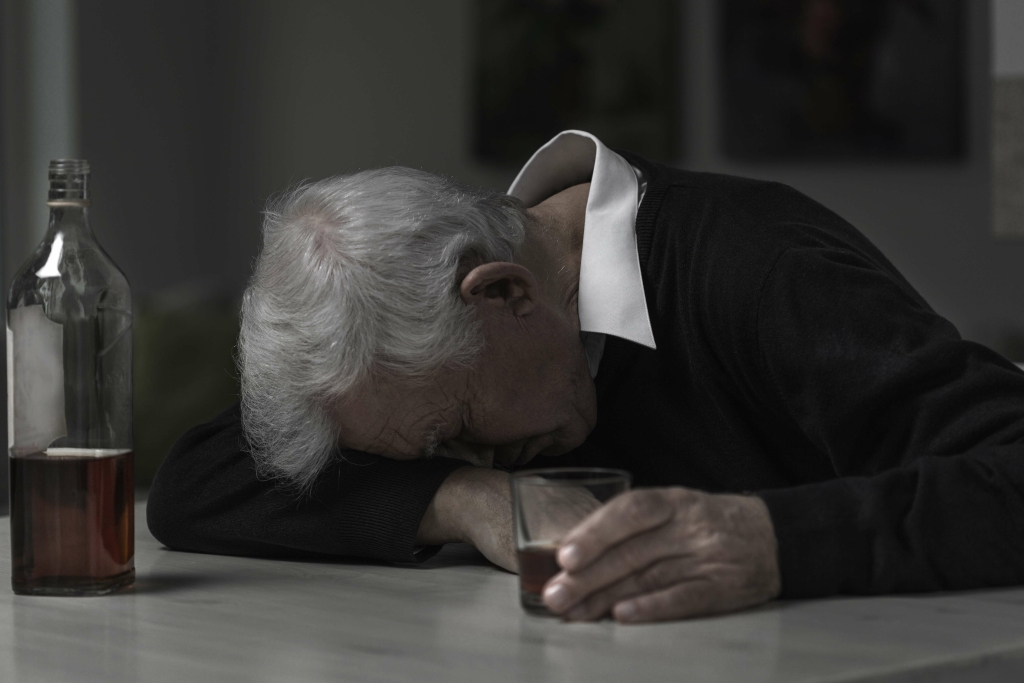Alternate between alcoholic beverages and non-alcoholic what does it feel like to be drunk beverages, and be mindful of how many you’ve had. Don’t give in to pressure to drink if you’re trying to avoid being too drunk. Paying attention to this rule is important not only for the safety of ourselves and others, but because the legal consequences of drinking and driving are serious. We could lose our license, or even go to jail — and the consequences only go up when we commit other traffic violations (like speeding or running traffic signals) while intoxicated. For all drinkers, newbies or not, the key to having a safe and enjoyable experience with alcohol is moderation.
The Science Behind Alcohol and The Brain: The Addiction Cycle
If you’re questioning whether enough time has passed since your last drink and if it’s safe to drive, err on the side of caution for yourself and others on the road and find a ride. Certain medical conditions, especially those that affect kidney or liver function, can affect how quickly alcohol is metabolized and how it affects you. You can’t really predict how long you’ll stay drunk, and try as you might to stop being drunk faster, there’s nothing you can do to lower your BAC once you’ve started drinking. You’ve knocked back a few drinks and things start looking a little fuzzy. Plus, we’re constantly introducing new features to optimize your in-app experience.

What are the legal implications of alcohol intoxication?
- When they relapse and use an opioid again, they do the same amount they were used to doing before they quit.
- I became (briefly) engaged to a performance artist – a recovering alcoholic who was almost giddy at the notion of ushering me into sobriety.
- The shift from feeling tipsy to being drunk can be marked by increased loss of coordination, slower reaction times, and a reduced ability to control impulses.
- If you’re planning on drinking, it’s essential to understand how long alcohol will stay in your system to avoid risky behaviors like driving under the influence.
- This is because alcohol becomes more diluted in a larger body mass, resulting in a lower concentration in the bloodstream.
- Alcohol lowers your inhibitions, which is why you might do things while drunk that you wouldn’t do sober.
These risks can have immediate and severe consequences, including legal issues and physical harm. Understanding what it feels like to be drunk involves exploring a mix of physical, emotional, and psychological sensations. This exploration can help individuals make informed decisions about their drinking habits and recognize the signs of intoxication. In this article, we delve into the various stages of being drunk, the emotional and psychological effects, and the impact on judgment and decision-making. Understanding your personal alcohol tolerance is key to responsible drinking. Factors such as body weight, metabolism, and alcohol tolerance can influence how alcohol is processed in your body.
Death (BAC: 0.45% or above)
BAC levels are typically measured using various methods, including breath, blood, and urine tests. The most common method is a breathalyzer test, which estimates BAC by measuring the amount of alcohol present in a person’s breath. Blood tests are considered the most accurate method for determining BAC, as they directly measure the alcohol concentration in the bloodstream. Urine tests are less common but can provide an indication of recent alcohol consumption. It can alcohol rehab be considered that being ‘tipsy’ is the middle ground of considering oneself when it comes to drinking alcohol. In severe cases, drinking too much alcohol within a short space of time can cause alcohol poisoning.
- Severe intoxication, also known as being heavily drunk or inebriated, occurs when a person consumes a large amount of alcohol in a short period.
- Individuals with a higher alcohol tolerance may appear less intoxicated even when their BAC is relatively high, making it more difficult to gauge their level of impairment accurately.
- Just be sure to hydrate and eat something before you start drinking so that you don’t end up feeling too sick the next day.
- The risk of alcohol poisoning is heightened, and severe intoxication can be life-threatening.
- A person in a blackout may still appear to be functioning—talking, walking, or even interacting with others—but they won’t remember any of it the next day.
Lately I’ve been wondering what being drunk actually feels like and if I should just give it a try. When you are tipsy, your blood alcohol content is around 0.03% to 0.06%. When you are drunk, your BAC is higher than this, typically sitting at around 0.08% or more. Being tipsy involves experiencing euphoria, chattiness, laughing, and disinhibition. For others beyond youth who may be drinking for the first time, being well-informed about alcohol’s effects is just as important. Inexperience means first-time drinkers of any age may be unable to know their limits, which leaves them unsure of whether or not what they’re experiencing is normal.
However, excessive alcohol consumption can lead to a variety of negative consequences, both short- and long-term. When we’re drinking for the first time, we might feel more intensified effects as it’s the first time our body is exposed to alcohol. If we continue to drink long term, alcohol affects our health and well-being in many ways. Identifying the early stages of alcoholism can help prevent dependence https://www.sinnoodo.com/choosing-a-drug-rehab-addiction-program/ and addiction.

Symptoms of BPD
Generally, people report feeling more relaxed and less inhibited when they are drunk. This can lead to people acting more wildly or impulsively than they normally would. AUD is the term that medical professionals use when someone’s drinking habits become dangerous.
Paying for Treatment
Recognizing the signs and symptoms of each level can help prevent dangerous situations and allow for timely intervention when necessary. The effects of alcohol on the brain can also result in slowed reaction times and decreased inhibitions. Additionally, excessive alcohol consumption can lead to blackouts or memory loss, as alcohol interferes with the formation of new memories.
However, frequent blackouts can be an early sign of problem drinking or alcohol use disorder. When people are unable to stop or control their drinking, they may black out more often than others. Most of us know someone who goes from quiet and reserved to extremely touchy-feely when they are drunk. At this stage, you will no longer respond to what’s happening around or to you.
Why does being drunk feel good to some people?
If you don’t drink often, be aware that alcohol will likely affect you more than someone who does drink regularly. For some people, it is helpful to stop drinking when they start feeling tipsy or are in the euphoric stage. While there isn’t a guarantee you will be below 0.08 BAC at this stage, it is a good marker to prevent some of the harmful effects of alcohol if you continue drinking. Because of the brain’s powerful dependence on alcohol, attempting to get sober on your own can be incredibly difficult, painful, and even life-threatening. This is why it is absolutely critical to seek professional and medical help when you decide it’s time to achieve sobriety.
